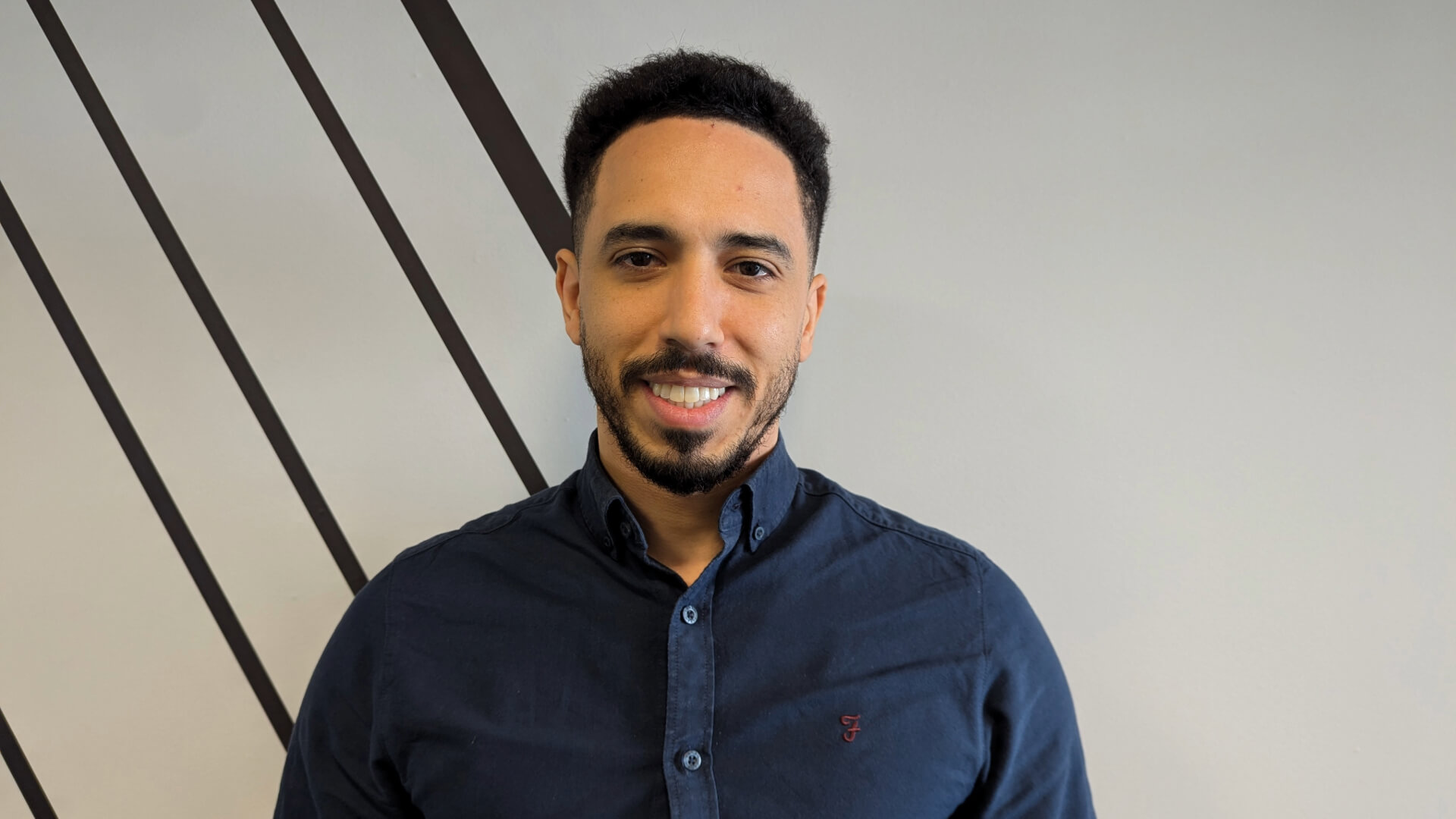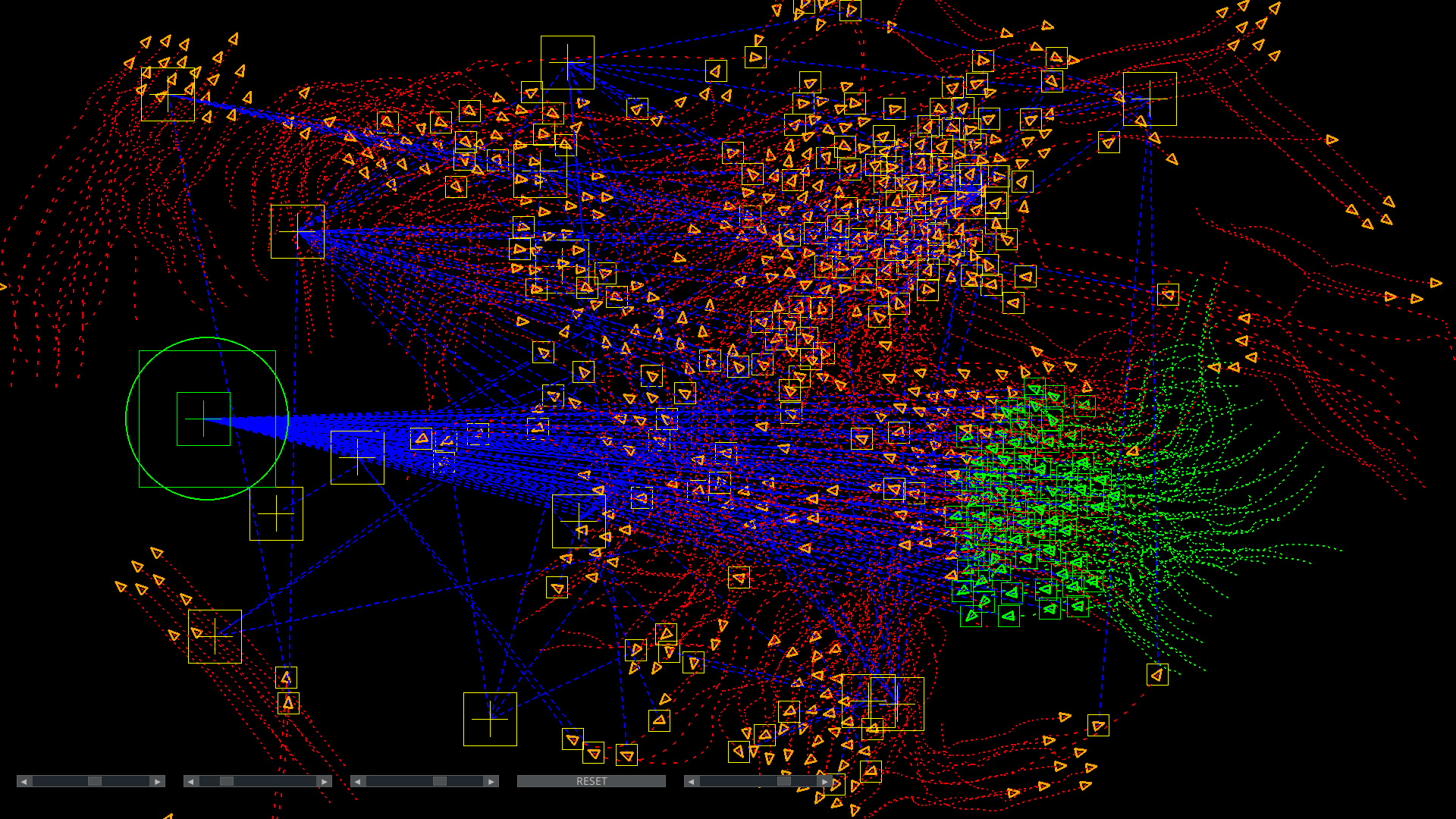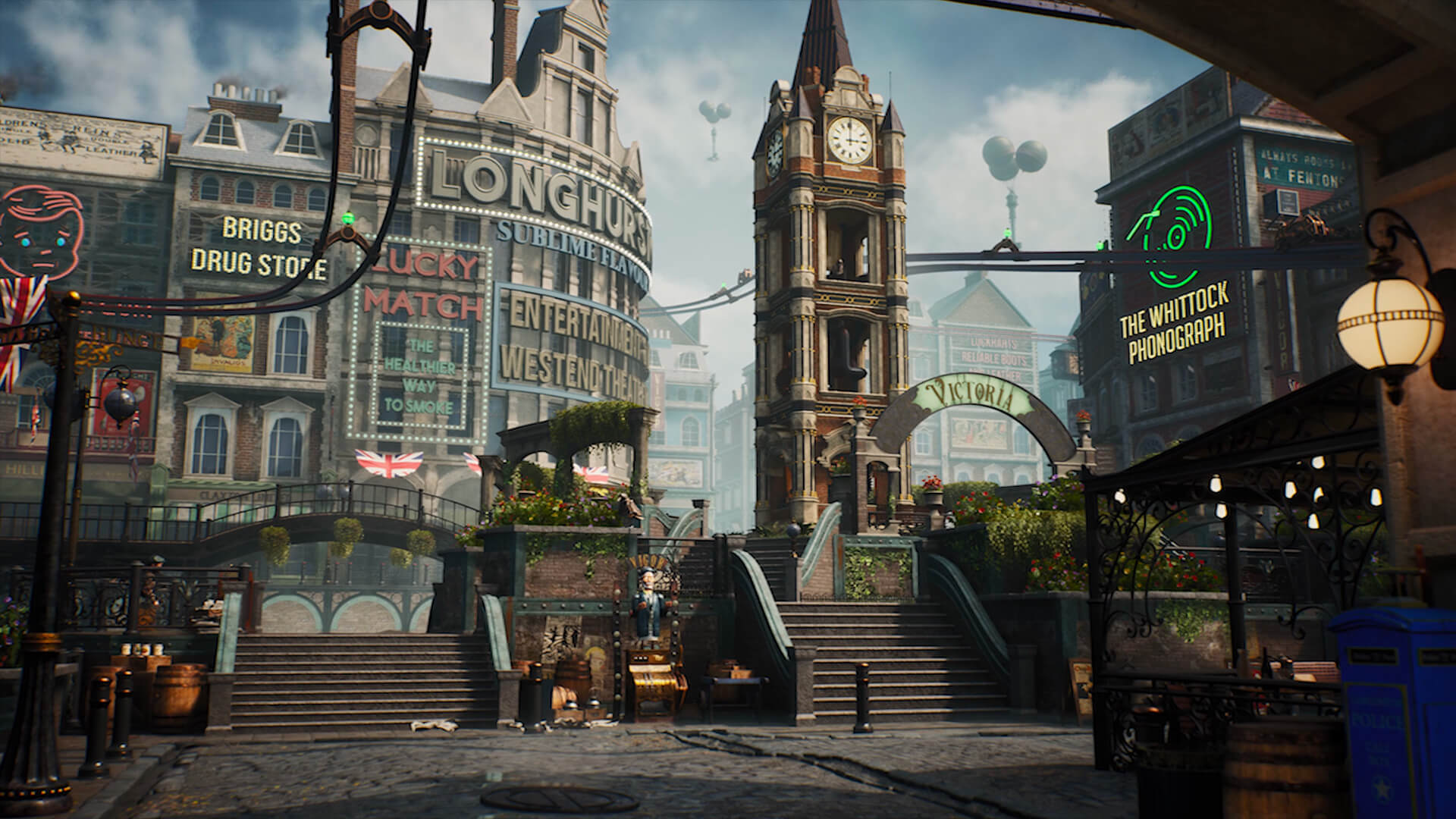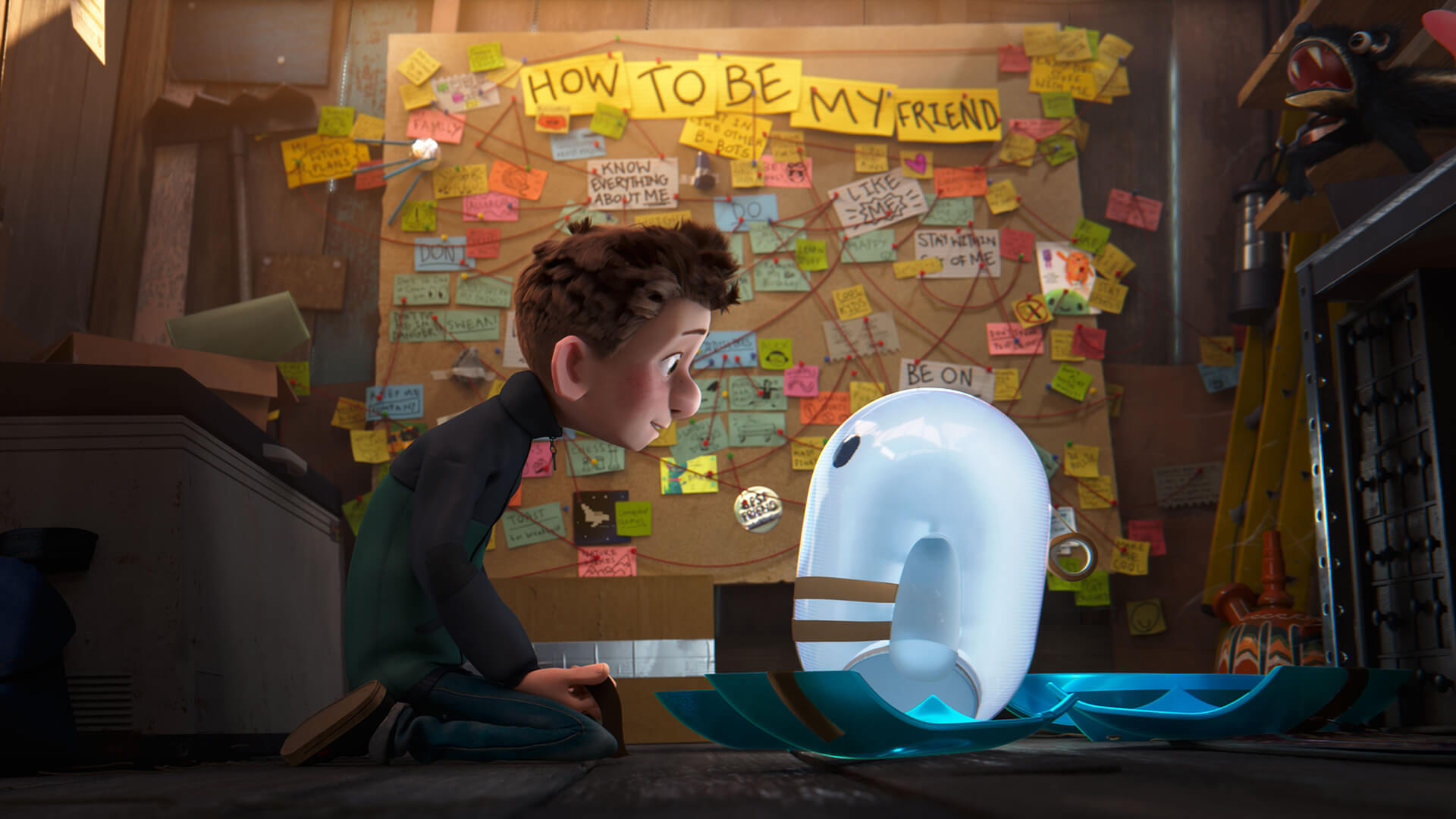MSc Programming for Games and VFX
MSc Programming for Games and VFX
Course Details
Location
Start date
14th September 2026
Duration
1 year
Contact time
2.5 days per week
Fees
London campus (UK students): £12,850
London campus (international students): £19,995
Live online: £12,850
Entry requirements
An undergraduate honours degree in a related subject such as Computer Science, Programming or Games Design, or equivalent industry experience.
Degree awarded by
Scholarships and discounts
To be eligible for scholarships and discounts, apply by:
- 22nd June (September 2026 intake)
Course overview
If you love games, films and animation, have a passion for coding, finding creative solutions and being part of a team, then Programming for Games and VFX is for you.
Programmers are the foundation of any interactive project, they are the people who innovate solutions, they also empower design and art in realising their vision, Programmers are highly sought after in industry with great employment opportunities across games, animation and visual effects (VFX).
If you’ve tried coding in the past but want to focus on games or VFX, are a Technical Artist who wants to deepen your knowledge, are a Game Designer or Artist who wants to also be able to envision their ideas interactively, this is the ideal programme for you.
Designed with our industry partners, including Creative Assembly, this cutting-edge course will enable you to develop and refine your skills, with individual specialisms. This course will provide rich and varied opportunities to develop experience in teamwork, as well as the soft and technical skills that developers look for in Programmers.
By the time you graduate, you will be ready for work with a deep technical knowledge of your chosen specialism and will have the ability to work in teams and collaborate with people in adjacent roles and fields. You will have the tools to solve technical problems faced within the creative industries and will bring all these aspects together, creating and supporting systems that allow for the creation of beautiful visual experiences, as you will have already done through multiple briefs and projects.
Taught by industry professionals, we have a high level of industry project mentoring from external developers throughout our courses, connecting our students to current development practice. This coupled with our studio-based practice and high spec equipment will give you the best foundation to become a Programmer.
Why choose this course
- Designed with industry - our advisory board of experts, from the likes of Creative Assembly help develop and keep this degree relevant.
- Learn from expert Tutor, Omar Zohdi who's worked at the likes of Unity, The Linux Foundation and Imagination Technologies.
- Receive feedback from industry professionals - an opportunity to level-up your work and build connections, ready to embark on your creative career.
- Work on industry-standard briefs and experience real-life scenarios, just like in a professional studio.
- Get to grips with the good practice, hardware, software and programming languages relevant to industries this course encompasses.
- Recognised degree - graduate with a postgraduate MSc qualification awarded by Coventry University which will boost your employability around the world.
- Aftercare package - we'll help you polish your portfolio and find the right job, with access to our studios and showreel clinics for 12 months.

Meet your Tutor, Omar Zohdi
Omar has over a decade of experience in the tech industry as a software engineer and developer relations manager. Specialising in game development, technical partnerships, and tech ecosystems, he has worked with leading companies such as Imagination Technologies, The Linux Foundation, and Unity. His deep expertise in mobile graphics, game engines, and performance optimisation has led him to deliver impactful tech talks and provide technical support to clients worldwide.
As a tutor at Escape Studios, Omar aims to leverage his extensive technical knowledge and hands-on experience in Unity, Unreal Engine, C++, C#, and Python to mentor and inspire the next generation of game developers. He is dedicated to helping students master game engines and programming languages, while nurturing their technical and creative growth.
Please note tutors are subject to change.
Course modules
Module 1 - Introduction to Programming and Graphics Systems
7 weeks (30 credits)
Programming fundamentals
- Mathematics for programmers
- Logic, control and flow
- Functions and operators
- Software/hardware
- Object-oriented programming (Encapsulation, Inheritance, and Polymorphism)
- IDE’s
- Source and version control
- 2D graphics (coordinates, transformations, image formats, synthesis, processing)
- 3D graphics (coordinates, transformations, models, projection, shading, rendering)
- Introduction to Graphics Software and Hardware (Operating Systems, CPU, GPU)
- The use of graphics libraries (OpenGL/Direct X)
- Real-time rendering and optimisation
Module 2 - Games Development and Design
7 weeks (30 credits)
Gameplay
- Game mechanics
- Prototyping and playtesting
- Games engines, APIs and libraries
- Platforms (Desktop / Mobile Development)
- Feature set, API and libraries
- Data Structures & Management
- Rendering and Shading
- Game Architecture and Design Patterns
- Input Handling (Control Schemes)
- Audio
- Performance and Memory Management
Module 3 - Distributed Systems and Networks for Games and VFX
7 weeks - (30 credits)
Introduction to distributed systems
- Network architecture and systems security (encryption, intrusion detection)
- Scalability, balancing and resilience
- Data management and distribution
- Quality of Service (QoS) for real-time
- Case Studies in Games and VFX Pipelines (e.g. multiplayer games and render farms)
- Cloud Systems
- Streaming and Real-time Data Processing
- Monitoring and Debugging Tools
Module 4 - Industry Specialism
10 weeks (30 credits)
Student led specialism research project with a negotiated brief.
Project - Tutor mentored, individual negotiated project brief.
Module 5 - Programming Production Project
16 weeks (60 credits)
Students work in small groups or individually to create a software solution for industry mentored project brief.
Project - industry mentored, individual or small group negotiated project brief.
For more details about modules, see the programme and module specifications.
More information
Entry requirements
Minimum requirements
An undergraduate honours degree in a related subject such as Computer Science, Programming or Games Design, or equivalent industry experience.
If you're not sure about your qualifications, get in touch.
International Students
We welcome applications from qualified candidates all over the world.
Postgraduate applicants will need a good undergraduate degree in a relevant subject such as Computer Science, Programming or Games Design (or significant professional experience).
Head to our international hub for more information. For any questions, reach out to our Admissions Team: admissions@escapestudios.ac.uk
Online study requirements
We can provide remote access to our workstations during teaching time. Due to availability restrictions, we highly advise you to have your own set up at home to study in your own time.
More things you’ll need:
- A strong internet connection
- Cloud storage or external hard drive to back up your work, 1TB+ recommended
- A three-button mouse or graphics tablet. Please note, the Wacom Intuos Pro range of tablets have the best support for our remote desktop software and provide the best experience.
- A computer microphone (and optionally a webcam)
- Note-taking materials.
If you have any questions about learning online or if you need help with what to buy, get in touch at hello@escapestudios.ac.uk.
How to apply
To apply, complete an online application form which includes a link to submit your portfolio. Our Admissions Team will get in touch to take you through the next steps.
To apply for one of our postgraduate masters programmes, you can complete an online application form, found on the relevant course page on our website. If your application is accepted, we'll ask you to submit a creative portfolio of work. Check out our creative portfolio guide for guidance on what we expect to see.
There isn't a formal application deadline for most of our postgraduate courses, but you may need to apply by a certain date to be eligible for our postgraduate scholarships or discounts.
If we make you an offer for a place on one of our programmes, you will need to agree to our terms and conditions for your place on the course to be secured.
Fees and funding
Fees
London campus:
- UK students: £12,450 (February 2026 intake)
- UK students: £12,850 (September 2026 intake)
- International students: £19,995*
*Escape Studios reserves the right to increase this tuition fee if a levy is imposed for the academic year 2026/27.
Live online:
- £12,450 (February 2026 intake)
- £12,850 (September 2026 intake)
Our postgraduate fees are payable within the first 18 weeks of the course, with a deposit to be paid one month before the start of the course. Please note, we review our fees every year.
Funding for UK students
For UK students living in England, you have the option to apply for a Government Masters Loan and borrow up to £12,858 in 2025/26, to help fund your course.
To be eligible for funding from Student Finance England, you must be studying on an eligible course at a provider registered with the Office for Students (OfS). Escape Studios is registered with the Office for Students and our masters programmes are eligible for funding.
Visit www.officeforstudents.org.uk for more information.
Scholarships and discounts
Visit our scholarships and discounts page for more information.
Payment plans
We offer payment plan options for all courses. Following an initial deposit at registration stage, your chosen payment plan will break down your remaining fees into up to three instalments.
Contact our Admissions Team on admissions@escapestudios.ac.uk or +44 (0)204 570 5091 or visit our admissions page for any questions about fees, funding and payment plans.
Assessment
The assessment methods employed in this programme have been developed to mirror industry practice as far as possible. We balance feedback from tutors and industry experts. It is crucial that, as a student, you learn how to accept and work with feedback from your superiors and peers, as this will be the norm when you work in industry. You also need to develop a keen self-critical eye, to be able to step back from your work and see what you could improve, and to have the ability to look at yourself and your working practices and make changes where necessary.
Formative assessment
This is one of the most important aspects of your work. You will receive regular feedback from your tutor, studio assistants and peers during your modules. This will often be oral feedback on your work, sometimes on a one-to-one basis, sometimes in a group feedback session or daily. All of this should help you build on your strengths and develop your skills as you progress through the course.
Summative assessment
This will be specifically designed to measure how well you meet the learning outcomes of the module. They will usually involve a task to meet a brief set by your tutor and will allow you to demonstrate the knowledge and skills that you have learned during the module. You’ll need to decide exactly how to complete the task, choosing particular techniques and approaches, and making decisions on the aesthetics and style to meet the given requirements.
Each module will have a practical element (usually a practical project, where you make something) and a written element (usually a journal or blog, where you reflect on what you’ve made). Sometimes you will also have to give a presentation to demonstrate your work. All these elements are essential to your development, by showing that you can deliver to a required level and that you understand why you can and how you could improve.
Summative assessment breakdown
You will be assessed as follows:
Introduction to Programming and Graphics Systems
- Assignment 1: Individual Project (75%)
- Assignment 2: Individual Retrospective (25%)
Games Development and Design
- Assignment 1: Individual Project (75%)
- Assignment 2: Individual Retrospective (25%)
Distributed Systems and Networks for Games and VFX
- Assignment 1: Individual Project (75%)
- Assignment 2: Individual Retrospective (25%)
Industry Specialism
- Assignment 1: Individual Project (75%)
- Assignment 2: Individual Retrospective (25%)
Programming Production Project
- Assignment 1: Team Project (20%)
- Assignment 2: Individual Project (40%)
- Assignment 3: Individual Retrospective (40%)
For more information, see full programme specifications.
Teaching and learning
Your overall workload will be divided between teaching sessions (2.5 days per week) and independent learning.
During your course, you’ll be able to develop your knowledge and skills in a number of ways. Some learning time will be closely directed and supervised by your tutors, at other times you’ll be free to organise your own study with guidance. All your scheduled studio time, except for some information sessions and presentations, will be in smaller groups based on specialism.
For your team project, you’ll be working with a smaller team, collaborating to meet a shared brief. This will give you ample opportunity to get the support and assistance that you need.
The first three modules have a high contact time, as this is where you will learn the knowledge and skills associated with your chosen subject, directed and informed by your tutors’ expertise and experience.
The Industry Specialism and Production Project modules will have a lower contact time, with your tutors taking on the roles of supervisors or studio leads. You’ll meet with them regularly to get feedback and help you stay on the right path, but these modules are much more about you managing the learning experience to meet your objectives. You’ll be free to organise your work either as a team or an individual to best suit your project requirements.
Each module has its own area on our Online Learning Environment (OLE) where you will find information about the module and the resources that are provided to support your learning. Some of this information will be dedicated to the module, other elements may be shared across different modules and some may be external assets that can help with your further study. There may be links to videos, online journals and e-books, and you should take advantage of these to enhance your development and take it beyond the studio experience. Tutors may highlight some of these during their sessions.
Students with additional needs or disabilities are supported by our Student Services Team.
Overall workload
This programme has two entry points each year. It is divided into two stages. Stage 1 comprises modules to a total of 120 credits and stage 2 comprises a 60-credit Production Project module. You must successfully complete each module in order to be awarded the specified number of credits for that module. One credit corresponds to approximately ten hours of 'learning time' (including all classes and all private study and research). Obtaining 180 credits in an academic year requires 1,800 hours of overall learning time.
The first three modules are taught in intensive blocks of seven weeks each, giving a total of 21 weeks. The final two modules are more self-directed. The Studio Project will take around 10 weeks and the Production Project will take around 15 weeks.
Each 30-credit module on the course requires you to commit 300 hours of study, with one 60-credit module which requires 600 hours of study. Some of these hours will be formally supervised in the learning environment and others will involve private study.
For more details about modules, credits and workload, see full programme specifications.
Software
- Rider is a cross platform integrated development environment designed for .NET developers and game developers using Unity and Unreal Engine.
- Unreal Engine is an advanced real-time engine used to create games with physics, effects, animation, photorealistic rendering and more. With it's easy-to-use interface, Artists can create and control immersive games and interactive experiences.
- Visual Studio Code (VS Code) is a free and open source code editor which includes support for debugging, syntax highlighting, intelligent code completion and more.
- Git is a free and open source distributed version control system designed for small to very large projects.
- Perforce includes a version control platform, web-based repository management, debugging tools and more.
- Autodesk Maya is known as one of the most powerful 3D animation software products. Maya helps Animation Artists create realistic and stylised animation and offers high control over the kind of user interface and scripted controls you can create.
- Houdini is primarily used for creating dynamic simulations and fluid-like effects, it also contains a modelling and texturing workflow. With a node-based workflow, Houdini makes it wasy to build tools from node trees and iterate changes as required by the client.
- Flow Production Tracking (formerly ShotGrid) is a cloud-based production management tool used for animation, games and VFX.
Career opportunities
This degree was created to meet industry demand. You will develop and apply the theoretical understanding, skills, knowledge, and competences required to excel in many different technical roles within the creative industries, such as a Programmer.
Check out our Careers Guide for more information about career opportunities and progression routes.




